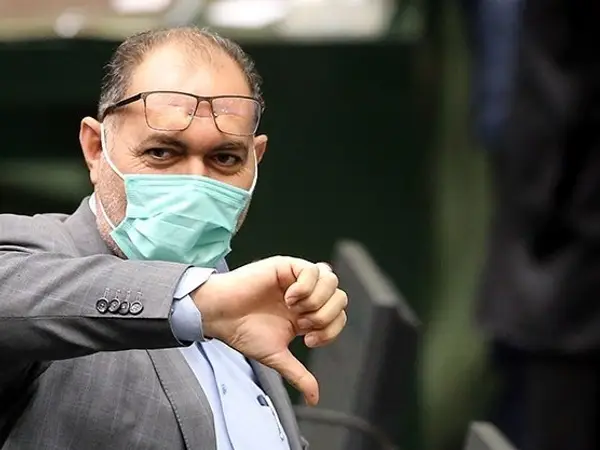An umbrella organization monitoring political parties in Iran has said that two-thirds of current lawmakers are unlikely to make it to the next parliament.
The Chairman of the Research Center of House of Parties, Mehdi Arab-Sadeq in an interview with moderate-conservative Khabar Online website said that "Some of these lawmakers need to apologize to the Iranian nation" for what they have and have not done at the Majles (parliament).
However, he said that the unpleasant situation is likely to continue as long as political parties are not there to serve the nation's interests, a reference to the fact that these groups are tightly controlled by the core of the regime and become active only weeks before choreographed elections.
Arab-Sadeq also criticized the government for "behaving in a way that the people laugh when officials put forward a new promise or fire off a new slogan." The government has remained inefficient in solving multiple crises, yet it is planning to win the next parliament in the 2024 elections.
Khabar Online presenting the interview described the Iranian year that ended March 20 as "a politically turbulent year" and recalled that this was a year in which 200 of parliament's 290 members who had called on Ebrahim Raisi to run for President in 2021, wrote to him that they regretted their decision. Despite this regret, lawmakers did not act to impeach ministers that they kept criticizing throughout the year.
The website added that some top government officials and several members of parliament have been setting up political parties or organizations during the past weeks apparently in preparation for next year’s elections.
Sadeq-Arab in his interview also noted that political parties allowed to exist did not lift a finger during months of widespread antigovernment protests.
He added that given the political and economic situation, at least two third of the 290 lawmakers cannot win enough votes to enter the next parliament.
Iranian lawmaker Ahmad Alirezabeigi said in an interview with ILNA website in Tehran, that the government does not listen to lawmakers' advice. "We told the government over and over that its economic vehicle is broken, but the only thing it did was changing the driver," he said, alluding to the change of the governor of the central bank and the ministers of labor and housing during the past year.
Alirezabeigi attributed most of the country's current economic chaos to the government's manipulation of foreign currency market, where the Iranian rial has seen its steepest fall in recent months. He argued that government intervention cannot solve the problem as it did not do so under previous governments. He charged that successive administrations have poured some $280 billion dollars of hard currency into the market since the 1990s to support the rial, without success. The currency has fallen almost 50-fold in the past 25 years.
Meanwhile, criticizing the government's inefficiency, Alirezabeigi said all of the current economic problems could have been predicted and prevented if officials were real experts. He further charged that the current government has totally lost the ability to control the supply and prices of essential commodities. As a result, industries and those involved in entrepreneurship in the centrally controlled economy have lost their hope and do not know how to survive.
